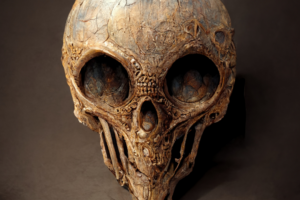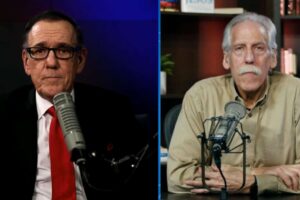Many point to America’s Christian history as the basis for their present-day political activism as they aim to vigorously work to restore the nation to its Christian roots. However, some question whether America was founded as a Christian nation.
In examining this, we must first make a distinction between the pilgrims (who signed the Mayflower compact to start a Christian-based society based on planting churches in the new land) and the official founding of America in 1776.
The Pilgrims, who seemed to walk out their faith more biblically than the Puritans (as well as many of the subsequent Founding Fathers), generally attempted to walk in peace and integrity with Native Americans. They never grew in numbers as much as the Puritans and eventually assimilated into the Puritan community.
The Puritans typically did not always have good relationships with the Native Americans. (There were also settlers from Spain and other parts of Europe who too had challenging relations with Native Americans. They often did not exemplify a biblical expression of Christianity.)
The Native Americans suffered mistreatment by these Puritans, as their motives, especially by the mid-17th century, seemed to be about making a profit. This was in contrast to the pilgrims, whose goal was the launching of a Christian society.
As we examine America’s founding, we observe that the Declaration of Independence and the Constitution did not overtly place the nation under the lordship of Jesus (although there were clear references to biblical passages and biblical principles in both documents). Additionally, the sovereign in the Constitution was not Jesus, but “We the People.”
The writer of the Declaration of Independence, Thomas Jefferson, clearly had a Judeo-Christian worldview. However, he refrained from siding with a particular brand of Christianity and instead addressed a broad audience. He did this by using amorphous language like, “the Laws of Nature and Nature’s God.”
The claim that Jefferson was a deist is not attested to by the Declaration of Independence. Jefferson spoke about providence and referred to God as being the supreme judge of the universe. (Deists would not usually use these terms since they did not believe in an imminent God who was actively involved in humanity’s affairs.)
In light of the above, some have equated the naturalistic principles in the founding documents with the inspired Scripture. This has inevitably led to idolatry of America as a nation.
It is worth noting that on the heels of the Protestant Reformation (1517) and the Peace of Westphalia (1645), western European nations were geographically divided according to their Christian denominational affiliation. Hence, they were considered “Christian nations” as part of the world of Christendom at that time. In light of this, it is interesting that America never employed a Christian symbol on its flag or dollar bills.
The first Great Awakening, under the preaching of George Whitefield and Jonathan Edwards, was instrumental in uniting the 13 colonies. This unification enabled the eventual resistance to England and its ensuing revolution. (Some called Whitfield the father of the American Revolution.)
However, the revolution weakened the spiritual life of the churches. It increased secularization, as America’s political ideals and activism virtually replaced church attendance and Christian theology, as well as a person’s commitment to Christ. During that time, the belief was that if one was not on the side of the American patriots, he was accursed of God. According to some, the American Revolution became the guiding light for organizing churches, interpreting the Bible and expressing the Christian faith.
Consequently, American patriotism and the revolution’s cause became more important than preaching the gospel. It also replaced Christian missions. Thus, the present-day connection between Christianity and engagement in politics is nothing new. It is easily noticeable by those versed in history.
So Was America Ever a Christian Nation?
The Supreme Court has been cited as saying that the United States is a Christian nation.
From a theological perspective, we have to distinguish between a real Christian and Christianization. Biblically speaking, only a person can be born again of the spirit. A nation cannot be a Christian (John 3:1-8).
However, what is meant is that the United States favors the religion of Christianity. A nation can have a Christian culture. This, in many ways, was the presupposition of America at its birth. (Most of the inhabitants were from Europe and held to Protestant Christianity.)
America, a Christian Nation in Practice?
To be a Christian assumes that one follows biblical teaching practices, especially those of the Lord Jesus Christ as found in passages like the Sermon on The Mount, as well as the apostles’ teachings.
First, in my opinion, America was never entirely a Christian nation. This is evident when one observes its mistreatment and broken treaties with Native Americans, as well as the racism against non-whites. Such racism culminated in the acceptance of African slavery. (There were also prejudicial laws against Chinese immigration in the 19th century called the Chinese Exclusion Act.)
However, we also have to understand that the presuppositions of the Declaration of Independence and the U.S. Constitution served as the foundation for political freedom and liberty. These ideals contained in such documents is what eventually led to the abolition of slavery.
Of course, to be fair, it was through the preaching of white evangelist, Charles Finney, that fomented the reform movements being catalyzed by the Second Great Awakening. This included abolitionism (anti-slavery movement), which was rejected by the South, resulting in the Civil War. The Civil War demonstrated that millions of white Americans resisted slavery. Almost 400,000 white Northerners died fighting for the freedom of their Black neighbors. Consequently, we cannot blame every white person in the past for slavery, nor should we judge every white person who is alive today for slavery.
Second, since the New Testament dispensation, God has not chosen any one nation. (He formerly chose only ancient Israel.) Some Puritans (and some contemporary patriots) believe America is a sort of “New Israel.” They reason that America is the only other nation founded upon a covenant with God. However, it is important to point out that man cannot initiate a covenant with God. God swore by Himself, as He did with Abram (Gen. 15:12-21, Heb. 6:13). Hence, God initiated the covenant with Abram to birth the nation of Israel, not visa versa.
God no longer expresses His kingdom solely through one territory or geopolitical boundary. His hand is upon all nations. They are His inheritance and will be the eventual possession of the Lord Jesus (Ps. 2:8-9, Luke 24:47, Acts 1:8-9).
Third, the only holy nation God has presently called to specifically represent His kingdom is the church. It is the spiritual anti-type to physical Israel (1 Pet. 2:8-9). As citizens of heaven, we look for no earthly city or nation to fulfill kingdom promises. Instead, we long for His eternal city and kingdom (Phil. 3:20, Heb. 11:10-17). {eoa}
Dr. Joseph Mattera is an internationally known author, consultant and theologian whose mission is to influence leaders who influence culture. He is the founding pastor of Resurrection Church and leads several organizations, including The U.S. Coalition of Apostolic Leaders and Christ Covenant Coalition. Dr. Mattera is the author of 12 bestselling books, including his latest The Jesus Principles, and is renowned for applying Scripture to contemporary culture. To order his books or to join the many thousands who subscribe to his newsletter, go to josephmattera.org.
Follow breaking news like this and more in our new platform, CHARISMA PLUS.
See an error in this article?
To contact us or to submit an article
























